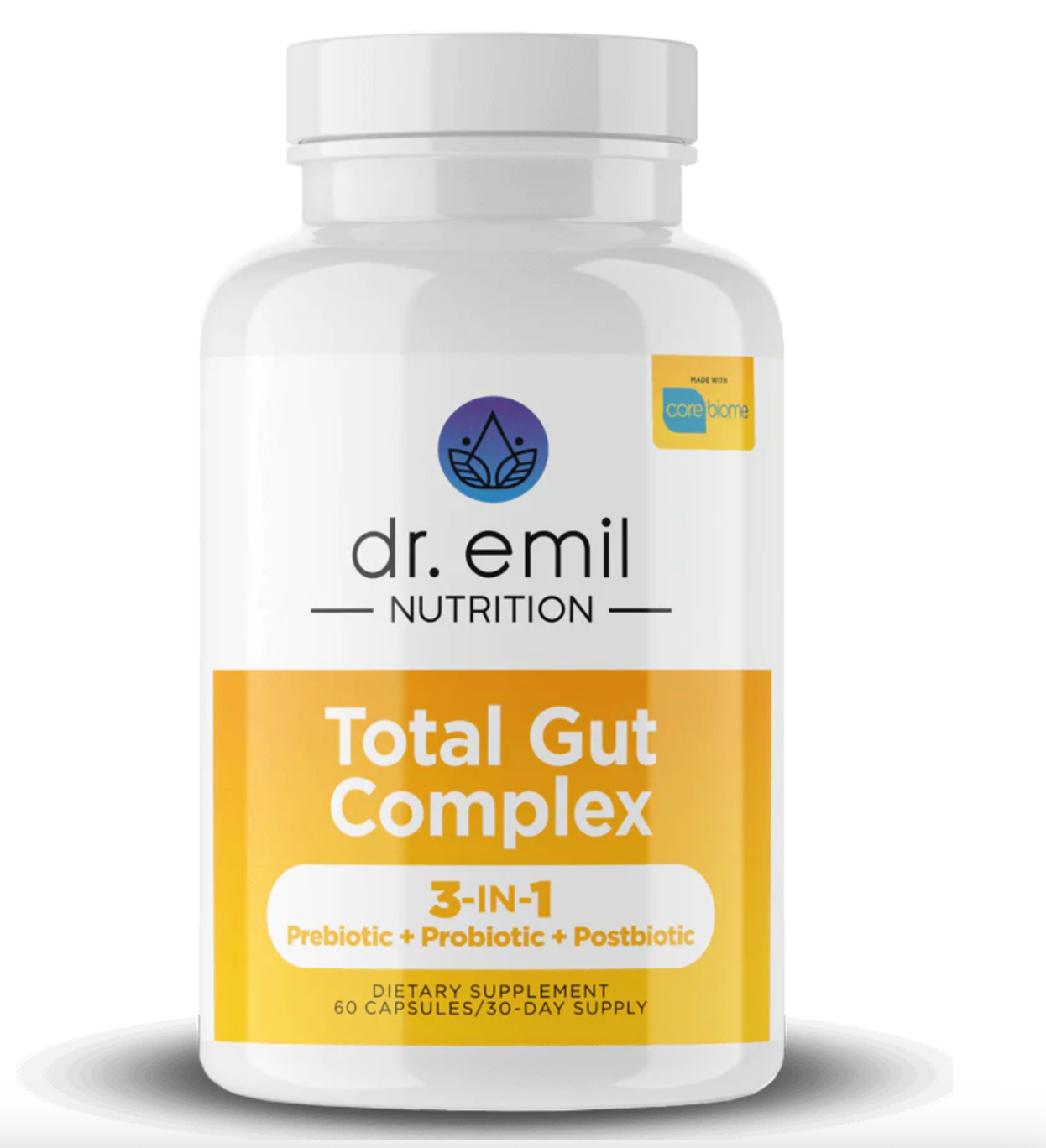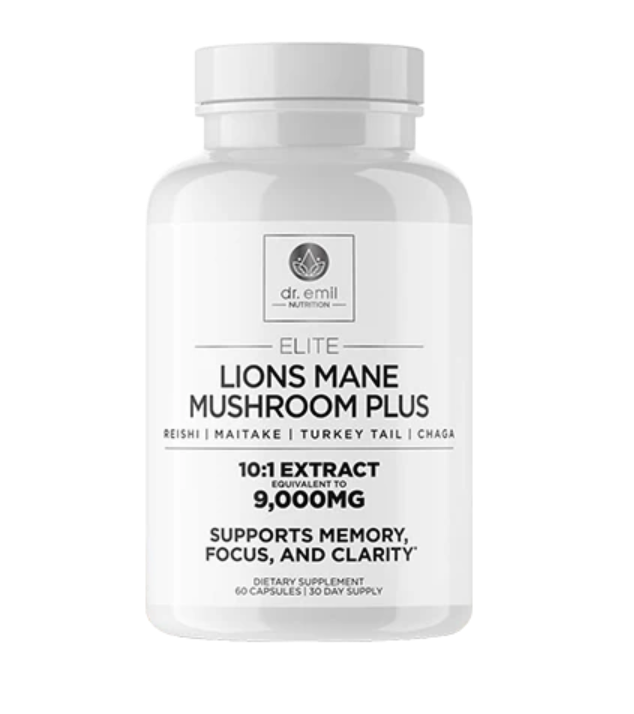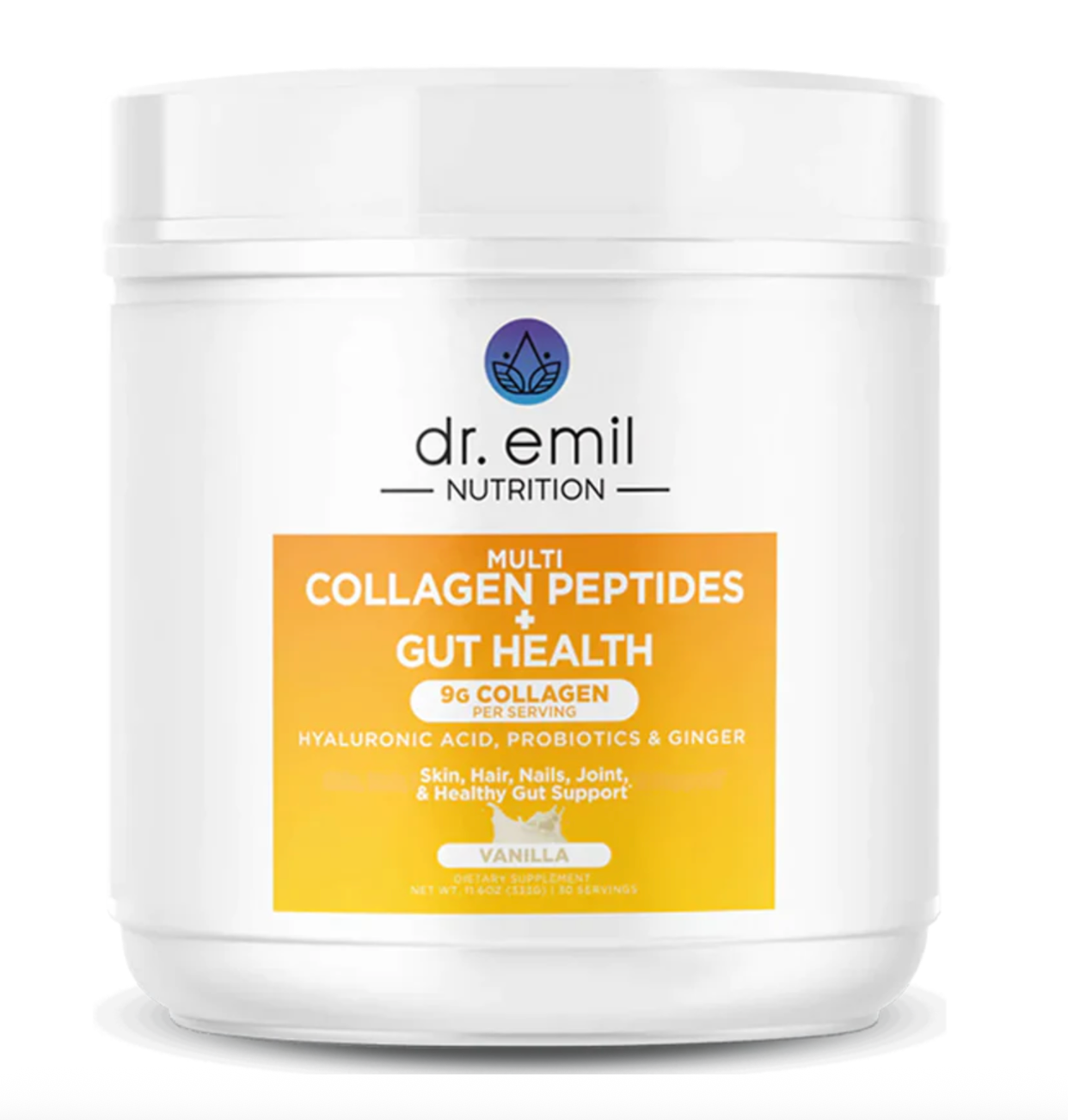Main image courtesy of North Carolina Extension Gardener.
Our gastrointestinal tract is one of the most essential systems in our bodies, after all, it is responsible for digesting food, ensuring that nutrients are absorbed properly, and that waste is eliminated. While it may seem like a simple process, the fact is there are a lot of moving parts to keep our bodies functioning properly.
An important part of this system is the small intestine, which receives the digested parts from the stomach and is responsible for absorbing nutrients into the body, before it moves what’s left to the large intestine. The small intestine is also home to bacteria, some good and some bad, that aid in digestion and keep our immune system functioning. When something interrupts this balance resulting in too much bacteria overgrowth, it is known as small intestinal bacterial overgrowth (SIBO). But what exactly is SIBO, and how do you treat it?

In today’s piece, we’re going to go deeper and discuss:
- What causes SIBO
- Symptoms of SIBO
- Ways to treat SIBO
- Taking berberine for SIBO
As a medical doctor, Dr. Emil works hard to ensure his supplements are well designed and work to get the results you’re looking for. Everyone is on a different health journey, and have different things they’re working on. Check out the website for his full line of top notch supplements to help you feel your best!
What is SIBO (and what causes it?)
How do you know if you have SIBO, and what symptoms should you look out for?

As we mentioned above, SIBO is the overgrowth of bacteria in the small intestine. And while the small intestine is always home to some bacteria, when that delicate balance is upset, there are repercussions. The reason this causes SIBO is because the bacterial overgrowth is the type of bacteria that does not normally make its home in our small intestine. While we may not like to think of bacteria in our gut, keep in mind that the good bacteria there are essential for digestion and optimal nutrient absorption!
The bacteria that form here don’t just appear out of nowhere, they are usually the result of another disease, condition, or surgery, including gastric bypass for obesity and gastrectomy for ulcers. Ultimately, they disrupt what the small intestine does, and can slow the processing of food and contribute to a buildup of waste that causes even more bacteria to grow and multiply.
Because the digestion process is vital to us, having a gut that is not functioning properly can be very debilitating. People with SIBO often experience chronic diarrhea as well as malnutrition and weight loss. In addition to disease or an issue with abdominal surgery, SIBO can also be caused by:
- An abnormal small intestine
- pH changes in the small intestine
- An issue with your immune system
- Complications from diabetes or diverticulitis
- Injury
- Crohn’s disease or intestinal lymphoma
It’s important to note that when your gut is not working correctly, your immune system is not operating at its full potential—and when your immune system is low, it can have an impact on your gut health. This is why it’s crucial to make sure you’re looking out for your gut health, as it can have big implications on your overall well being.
Symptoms of SIBO
How do you know if you have SIBO? There are some tell tale signs that something may be wrong if you’re experiencing some of the symptoms of SIBO.
- Loss of appetite. If you suddenly find that you’re no longer eating what you normally do, or that you’re struggling to get your daily nutrients, there may be something more going on with your body.
- Abdominal pain. Pain in the abdominal is not usually something you should brush off. This is especially true if you are also dealing with a disease, or you have recently had abdominal surgery. You may think it is just gas or bloating, and while these are benign most of the time, if you have severe gas and bloating each time you eat, it’s time to see your doctor.
- Diarrhea. Consistent diarrhea can lead to dehydration, which strains your body even more. If you find that you no longer have complete, solid bowel movements, this could be a sign that something else needs to be addressed.
- Unintentional weight loss. If you’re not trying to lose weight, but it seems to be coming off anyway, there could be an issue with your digestive tract. SIBO typically leads to malnutrition, and one of the more obvious signs of this is when you shed weight.

Issues caused by SIBO
SIBO is not something that should go unchecked, and if you’re experiencing any of the above symptoms for two or more days, it’s time to discuss things with your doctor. SIBO is linked to other issues that can have harmful and lasting repercussions in the body.
- Continuous poor absorption. When you have an excess of bacteria in your small intestine, the result is poor absorption of the basic compounds that the body needs to operate. These include fats, carbohydrates, and proteins. During normal digestion, bile salts are released to help digest fats, however with SIBO, the salts are broken down by the excess bacteria. This leads to incomplete digestion, poor absorption of necessary fats, and diarrhea. Bacteria that shouldn’t be there can also damage the mucous of the intestinal lining and their by-products can cause abdominal pain, diarrhea, and dehydration.
- Vitamin deficiency. When your body is not absorbing fats the right way, it means that fat soluble vitamins like A, D, E, and K cannot be absorbed properly. Unwanted bacteria also absorb any vitamin B12 in your system, which means it’s not allowed to do its job for your body. Vitamin B12 is essential for your nervous system and blood cells to function properly. Without it you’ll be deficient, which could lead to irreversible damage to the nervous system.
- Weak bones. Because your body cannot absorb anything properly due to SIBO, it means your bones aren’t getting the calcium they need to stay strong. Over time, this can weaken your skeletal system and contribute to conditions such as osteoporosis.
Ways to treat SIBO
So what can you do to get rid of that excess bacteria?

SIBO is something no one wants to deal with, however if your doctor thinks this might be something that you have, there are treatment options. The key is not waiting for the symptoms to go away on their own, because they won’t. This is especially true if you have factors that could increase your chances of getting SIBO (such as having diabetes, recent abdominal surgery, etc.)
Your doctor will outline a SIBO treatment plan that will usually involve:
Antibiotics
The first thing your doctor will do is to get rid of the excess bacteria that is causing all the trouble. This is typically done with antibiotics such as Xifaxan, Cipro, or Flagyl. While antibiotics are a great way to eliminate the bacteria, they will not address the underlying reason why this happened in the first place. You may need to undergo more tests to determine what it was that caused your SIBO in the first place. If it is the result of an underlying condition, you’ll also need to address that as well.
Change in diet
You may need to make changes to your diet to ensure you’re getting all the vitamins and nutrients your body needs. This may be as simple as adding more healthy items to your daily intake, reducing the amount you eat at each meal, or avoiding certain foods that cause discomfort. If you have any vitamin deficiencies as a result of SIBO, your doctor will want to make sure you’re taking those supplements as well. You may also benefit from going on an elemental diet, which involves intaking medically formulated liquids so the nutrients are easy for your body to absorb.
Probiotics
Additionally, your doctor may also decide to include probiotics into your treatment plan as they can also help balance out your gut bacteria. Probiotics are known to help with the healing of the gut lining that may have been disrupted from SIBO, and they can also work to reduce the amount of overall inflation in this area.
Supplements - taking berberine for SIBO

In addition to antibiotics, changes to your diet, and possibly probiotics, did you know there are also plant-based supplements that might help heal and improve the function of your gut? One of the most popular supplements to help with gut health is berberine. This compound comes from a variety of plants and trees, and has all kinds of wonderful benefits. Among them is helping to keep your gut health in check.
We briefly discussed earlier how important it is to have a healthy gut, and when your gut is out of whack, as is the case with SIBO, there can be significant repercussions to your health. Berberine specifically can help fortify and restore the gut lining, which is essential for proper absorption and to keep harmful bacteria out of the small intestine. One of the many properties of berberine is that it also helps reduce inflammation, which happens when you’re dealing with SIBO.
Taking berberine will not only work to reduce the inflammation that’s already there, but may even start to reduce it (along with other treatments prescribed by your doctor). With less inflammation throughout the body, you’ll be on your way to reducing SIBO—but you can also reduce your chances of developing other chronic conditions such as diabetes, heart disease, and obesity.
This safe, helpful supplement also helps regulate blood sugar levels, reduce the risk of heart disease, and may contribute to weight loss.
Other tips to keep your gut healthy
When your gut is healthy, you can feel your best

No one wants to have a condition like SIBO. It interferes with one of the most basic systems in our body, and the results of it can be debilitating. Ideally, you’ll never have to experience this problem. One of the best ways to prevent something like this from happening is to ensure your gut health is on the top of your list.
Here are four ways you can work to improve your gut health:
1. Eat what’s good for you
We know that balanced diets are the way to go when you’re trying to lose weight or stay committed to a healthy lifestyle. But did you know this can also have an impact on your gut health? Adding plenty of fruits and vegetables to your day is important, especially since most Americans don’t. Not only are they missing out on great vitamins and minerals, but fruits and veggies have the fiber that your gut needs. Fiber is a great way to build and keep the good bacteria that keep your gut running properly.
Additionally, regularly eating fermented foods such as kefir, kimchi, and sauerkraut are excellent ways to keep your gut healthy.
2. Make rest a priority
Sleep can be elusive for many people, but it’s important that you try and get your 7-8 hours each night. When we’re sleeping, our body repairs and rests, and it’s the cornerstone to having a good day. When we’re sleep deprived we don’t feel like ourselves and we’re more likely to develop chronic issues like inflammation or obesity.
Keep in mind: what matters is progress, not perfection. Some nights you might not get a full 8-hour-snooze, and that’s okay! Life happens. The important part is that you’re giving your body the rest you can and listening to its needs. When it’s all said and done, even 4 hours of sleep is better than none.
3. Exercise
Movement is so good for your muscles and bones, but it’s also great for your bodily systems, and that includes your gut! Keeping active and staying at a healthy weight ensures your body isn’t working overtime or fighting off chronic inflammation or extra pounds.
4. Pay attention to stress
When we’re stressed, it takes its toll on the body. Chronic and ongoing stress can hurt your immune system, which is essential to maintain a healthy gut. Find ways to destress—and remember exercise is a great way to work off stress!
More Gut Health Supplements for a Happy Microbiome 🙂
Berberine Isn’t the Only Supplement That Can Give Your Gut Some Support

Berberine is a powerful natural supplement that can have a positive impact on gut health, but it’s far from your only option. Berberine is generally considered safe and effective for adults, but not everyone can add berberine to their routine because of potential interactions with medications or other supplements – that’s why it’s always important to check with a doctor before adding a new supplement to your regimen!
Luckily, there are plenty of options out there that offer gut health support. Here are a couple of our favorites in the Dr. Emil catalog!
Dr. Emil Nutrition Total Gut Complex

Dr. Emil Nutrition Total Gut Complex is a comprehensive formula designed to support digestive balance and overall gut health. Packed with probiotics and prebiotics, it helps cultivate healthy gut bacteria while supporting proper digestion and nutrient absorption.
Enzymes included in the formula assist in breaking down proteins, fats, and carbohydrates, reducing bloating and discomfort. The combination of natural ingredients also works to strengthen the intestinal lining, helping protect against harmful bacteria and inflammation.
With regular use, Total Gut Complex may promote smoother digestion, improved bowel regularity, and enhanced immune function through a healthier gut microbiome
Dr. Emil Nutrition Lion’s Mane Mushroom Plus

Lion’s Mane Mushroom Plus supports gut health by promoting a balanced microbiome and reducing digestive inflammation.
Lion’s Mane is known for its prebiotic effects, providing nourishment for beneficial gut bacteria, which helps maintain proper intestinal function. The formula may also support the integrity of the gut lining, protecting against irritation and promoting optimal nutrient absorption.
By modulating inflammation and oxidative stress in the digestive tract, it helps create an environment where both gut bacteria and digestion can thrive. This supplement is a natural, holistic option for maintaining digestive wellness and supporting overall immune and neurological health.
Dr. Emil Nutrition Collagen Peptides + Gut Health

Collagen Peptides Plus Gut Health is formulated to support the structural integrity of the digestive tract. Collagen, a key protein in the gut lining, helps strengthen and repair the intestinal walls, reducing permeability and supporting overall gut barrier function. Combined with gut-friendly nutrients, this supplement may reduce inflammation and promote healthy digestion, aiding in nutrient absorption.
By supporting both gut lining health and the balance of beneficial bacteria, it helps maintain digestive comfort and regularity. Collagen Peptides Plus Gut Health is an easy, natural way to enhance gut resilience while also benefiting skin, joints, and overall wellness!
Berberine can help your gut stay healthy
Making gut health a priority is something everyone should do, not just those who have had SIBO. If you’re looking for an easy, daily way to keep your digestive system at peak performance consider adding berberine supplements!






